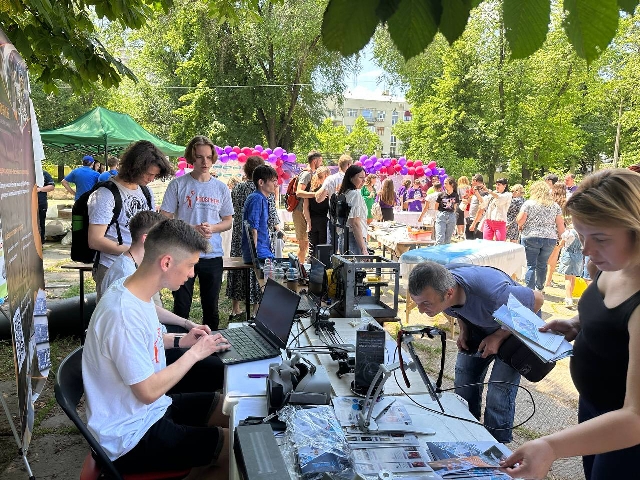
Department of cyber security and computer-integrated technologies
Phone: +38(056)766-49-88
Web: https://fti.dp.ua/dept/dcict/
Facebook: https://www.facebook.com/rea.ftf.dnu/
E-mail: rea.ftf@gmail.com
The head of the Department is doctor of philosophy, docent Klymenko Svitlana Volodymyrivna.
Web: https://fti.dp.ua/dept/dcict/
Facebook: https://www.facebook.com/rea.ftf.dnu/
E-mail: rea.ftf@gmail.com
The head of the Department is doctor of philosophy, docent Klymenko Svitlana Volodymyrivna.
Education is provided by 6 professors, 7 docents, and 3 senior lecturers.
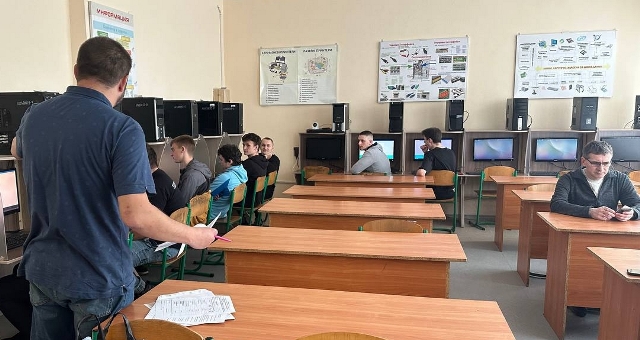
The Department of Cybersecurity and Computer-integrated Technologies was founded in January, 2023 by means of integration two departments that have longtime history of scientific research and education activity in providing best qualified specialists. These are department of control systems, that has started since physical and technical faculty began, and department of radioelectronic automation, that was founded in 1966.
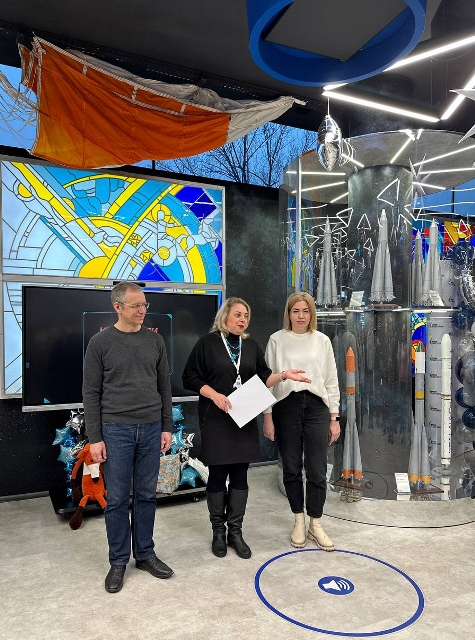
Starting from the 2023/24 academic year, the Department of Cybersecurity and Computer-integrated Technologies recruits and trains students for higher education by the following after educational programs.

І. The first level of higher education (bachelor):
– Cybersecurity and physical security systems (specialty: 125 Cybersecurity and information protection; field of knowledge: 12 Information technologies; on the based of complete secondary education);
– Control and telecommunication systems of aircraft and on-ground systems (specialty: 173 Avionics; field of knowledge: 17 Electronics, automation and electronic communications; on the based of educational and qualification level of junior specialist, educational and professional degree of professional junior bachelor, educational degree of junior bachelor);
– Automation and computer-integrated technologies (specialty: 174 Automation, computer-integrated technologies and robotics; field of knowledge: 17 Electronics, automation and electronic communications; on the based of complete secondary education).
– Cybersecurity and physical security systems (specialty: 125 Cybersecurity and information protection; field of knowledge: 12 Information technologies; on the based of complete secondary education);
– Control and telecommunication systems of aircraft and on-ground systems (specialty: 173 Avionics; field of knowledge: 17 Electronics, automation and electronic communications; on the based of educational and qualification level of junior specialist, educational and professional degree of professional junior bachelor, educational degree of junior bachelor);
– Automation and computer-integrated technologies (specialty: 174 Automation, computer-integrated technologies and robotics; field of knowledge: 17 Electronics, automation and electronic communications; on the based of complete secondary education).

II. The second level of higher education (master):
Automation and computer-integrated technologies (specialty: 174 Automation, computer-integrated technologies and robotics; field of knowledge: 17 Electronics, automation and electronic communications; on the base of bachelor's degree).
III. The third level of higher education (doctor of philosophy):
(specialty:174 Automation, computer-integrated technologies and robotics; field of knowledge: 17 Electronics, automation and electronic communications; on the basis of a master's degree).
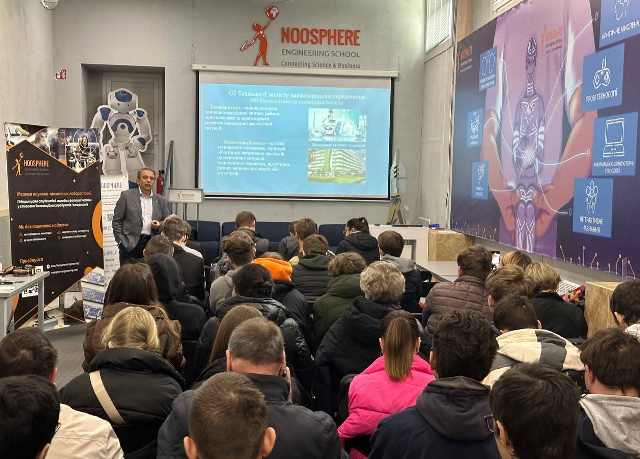
At the same time, the Department continues education according to the following programs.
I. The first level of higher education (bachelor):
– Cybersecurity (specialty: 125 Cybersecurity; field of knowledge: 12 Information technologies);
– Control and telecommunication systems of aircraft and on-ground systems (specialty: 173 Avionics; field of knowledge: 17 Electronics and telecommunications);
– Automation and computer-integrated technologies (specialty: 151 Automation and computer-integrated technologies; field of knowledge: 15 Automation and instrumentation).
II. The second level of higher education (master):
– Avionics (specialty: 173 Avionics; field of knowledge: 17 Electronics and telecommunications);
– Automation and computer-integrated technologies (specialty: 151 Automation and computer-integrated technologies; field of knowledge: 15 Automation and instrumentation).
III. The third level of higher education (doctor of philosophy):
– Avionics (specialty: 173 Avionics; field of knowledge: 17 Electronics and telecommunications);
– Automation and computer-integrated technologies (specialty: 151 Automation and computer-integrated technologies; field of knowledge: 15 Automation and instrumentation).
I. The first level of higher education (bachelor):
– Cybersecurity (specialty: 125 Cybersecurity; field of knowledge: 12 Information technologies);
– Control and telecommunication systems of aircraft and on-ground systems (specialty: 173 Avionics; field of knowledge: 17 Electronics and telecommunications);
– Automation and computer-integrated technologies (specialty: 151 Automation and computer-integrated technologies; field of knowledge: 15 Automation and instrumentation).
II. The second level of higher education (master):
– Avionics (specialty: 173 Avionics; field of knowledge: 17 Electronics and telecommunications);
– Automation and computer-integrated technologies (specialty: 151 Automation and computer-integrated technologies; field of knowledge: 15 Automation and instrumentation).
III. The third level of higher education (doctor of philosophy):
– Avionics (specialty: 173 Avionics; field of knowledge: 17 Electronics and telecommunications);
– Automation and computer-integrated technologies (specialty: 151 Automation and computer-integrated technologies; field of knowledge: 15 Automation and instrumentation).

The main areas of scientific research are:
– cybersecurity and information protection,
– information and communication systems,
– statistical methods in information processing,
– communication networks, cryptography, software and software-hardware methods and means of technical information protection,
– automation, computer-integrated technologies and robotics,
– technical, software and mathematical support for automation objects and processes,
– methods and means for simulation complex technical systems and information technologies,
– control and telecommunication systems of aircraft and on-ground systems,
– electrical engineering, circuit engineering of electronic, radio-electronic and microprocessor devices,
– radar technologies and aircraft navigation,
– satellite systems and groups.
– information and communication systems,
– statistical methods in information processing,
– communication networks, cryptography, software and software-hardware methods and means of technical information protection,
– automation, computer-integrated technologies and robotics,
– technical, software and mathematical support for automation objects and processes,
– methods and means for simulation complex technical systems and information technologies,
– control and telecommunication systems of aircraft and on-ground systems,
– electrical engineering, circuit engineering of electronic, radio-electronic and microprocessor devices,
– radar technologies and aircraft navigation,
– satellite systems and groups.
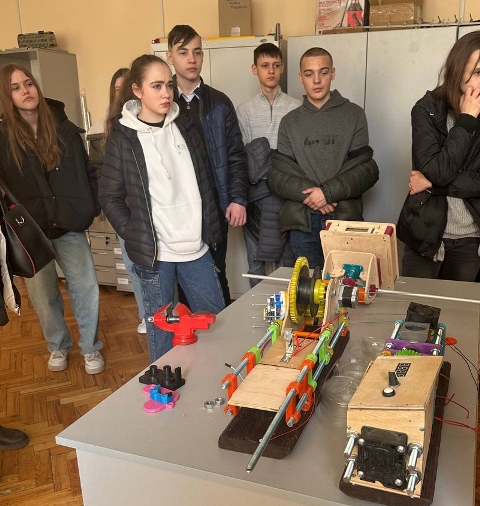
The Department has an educational laboratory of cybersecurity, control systems and computer-integrated technologies.
The Department of Cybersecurity and Computer-integrated Technologies represents Dnipro national university in the project "Cybersecurity for critical infrastructure in Ukraine", funded by USAID and implemented with the help of DAI Global LLC.
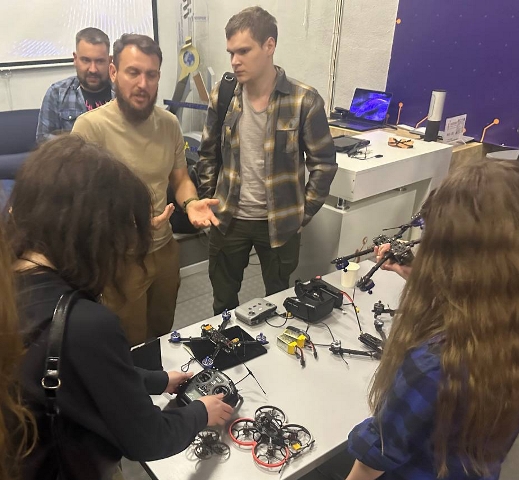
Students of the chair take an active part in educational, scientific research, student self-government and mass cultural events. Students demonstrate their achievements in scientific, practical and research activity during the defense of qualification papers, at competitions of student works, student Olympiads, international scientific and practical conferences "Man and Space", "Dnipro Orbit", "International Astronautical Congress" and others.
